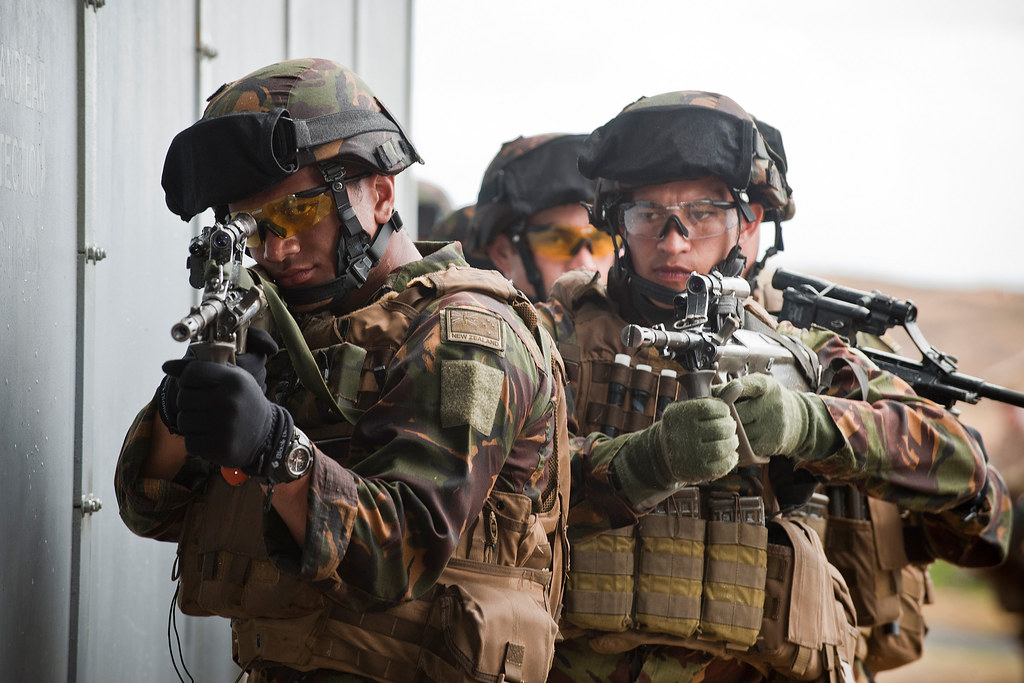Military-Style Academy pilot closes with promising results and safer communities
Minister Chhour reports marked improvements in behaviour, attitudes toward offending, and daily activities.

- Country:
- New Zealand
New Zealand’s first 12-month Military-Style Academy (MSA) pilot has wrapped up after a year of intensive, wrap-around work with some of the country’s most serious and persistent youth offenders. According to Minister for Children Karen Chhour, early feedback is “overwhelmingly positive,” with the programme meeting—and in several cases exceeding—its goal of reducing re-offending by building structure, skills, and support around rangatahi and their whānau.
What the pilot was
Launched in July 2024 at Te Au rere a te Tonga Youth Justice residence in Palmerston North, the pilot tested a new approach: combining a disciplined, team-based daily routine with therapeutic services and targeted life skills. Participants worked closely with social workers, a dedicated mentor, and specialist professionals, while families received sustained assistance to stabilise home environments.
Key elements included:
-
Structured days emphasising punctuality, teamwork, physical training, and constructive recreation.
-
Therapeutic supports tailored to the young person’s needs (e.g., counselling, addictions support, learning support).
-
Education and employability: literacy and numeracy catch-ups, work-readiness coaching, placements and work experience.
-
Whānau engagement: regular contact, practical assistance such as accessing stable housing and parenting support services, and guided reunification plans where appropriate.
What changed for participants
Minister Chhour reports marked improvements in behaviour, attitudes toward offending, and daily activities. Not every participant ceased offending entirely—“zero re-offending was never going to be realistic,” the Minister noted—but many chose better pathways with visible shifts in personal responsibility and respect for others.
Early outcomes highlighted by the Minister include:
-
Employment and work experience placements secured by several participants.
-
Return to sport and pro-social activities, re-establishing positive peer networks and routines.
-
Improved personal responsibility, with “a desire to no longer victimise others” observed in the vast majority.
-
Whānau appreciation for practical support that reduced stressors known to drive re-offending.
Why it matters for communities
The government set a target to reduce the total number of children and young people with serious and persistent offending behaviour by 15%, and says progress is ahead of schedule. The MSA pilot is credited as a major contributor: by interrupting entrenched patterns, equipping young people with structure and agency, and addressing the pressures facing families, the programme has helped make communities safer while restoring hope and direction for participants.
Lessons learned
Although a formal evaluation will follow, several practice lessons are already clear:
-
Consistency beats intensity alone: disciplined routines worked best when paired with consistent, relationship-based mentoring.
-
Family stability is pivotal: gains accelerated when housing, parenting support, and income stability were addressed alongside youth goals.
-
Pathways must be concrete: real jobs, apprenticeships, and club-based activities locked in progress better than classroom learning alone.
-
Aftercare matters: the transition out of a residence is a high-risk moment; sustained follow-up is essential.
What’s next
With the pilot concluded, officials will consolidate results, participant feedback, and whānau insights to inform next steps and potential expansion. Any scaled model is expected to retain the core pillars—discipline, skills, therapy, and whānau support—while strengthening post-programme follow-up so gains are maintained in the community.
Minister Chhour summarised the intent succinctly: the programme’s goal is to provide meaningful supports and real opportunities so young people can choose better—and many now are. As the government weighs expansion, communities can expect a continued focus on reducing harm, restoring safety, and ensuring rangatahi have reasons—and routes—to thrive.










